Hydroponics in Refugee Settlements
Hydroponics in Refugee Settlements
Hydroponic farming offers sustainable agricultural solutions in refugee settlements, enhancing food security and self-sufficiency. This method requires minimal soil and water, making it ideal for challenging environments. Key benefits include:
- Efficient Resource Use: Hydroponics uses up to 90% less water than traditional farming.
- High Yield: Produces more crops in less space and time.
- Nutritional Impact: Provides fresh, nutritious produce, improving health and well-being.
Implemented Settlements
Our hydroponic farming initiatives have been successfully implemented in the following refugee settlements:
- Kyaaka I
- Kyaaka II
- Kiryandongo
- Kyangwali
- Bidi Bidi
- Nakivale
- And others
Impact Statistics
- Refugees Trained: Over 1,500 refugees trained in hydroponic farming techniques.
- Food Production: More than 80% of trained refugees now actively growing food using hydroponics.
- Women Participation: Women make up 70% of the participants in hydroponic farming initiatives.
- Sustainable Practices: Refugees sell surplus produce in local markets, generating income, and use local materials for farming.
Join Our Initiative
Join Hydroponic Farms' initiative and become part of a community dedicated to sustainable and innovative agriculture. Contact us today to learn more about our programs and how we can work together to support refugee settlements with hydroponic farming solutions.
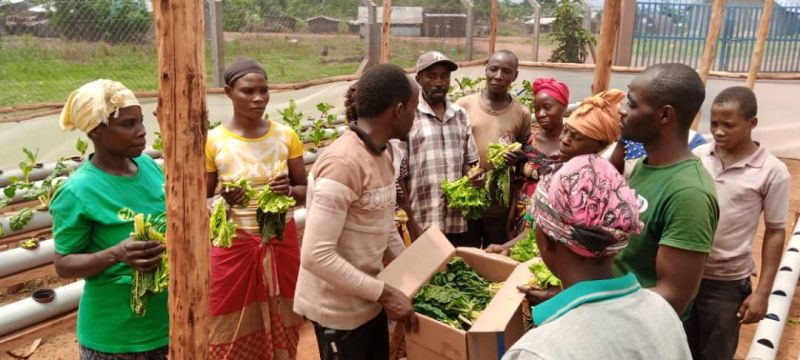
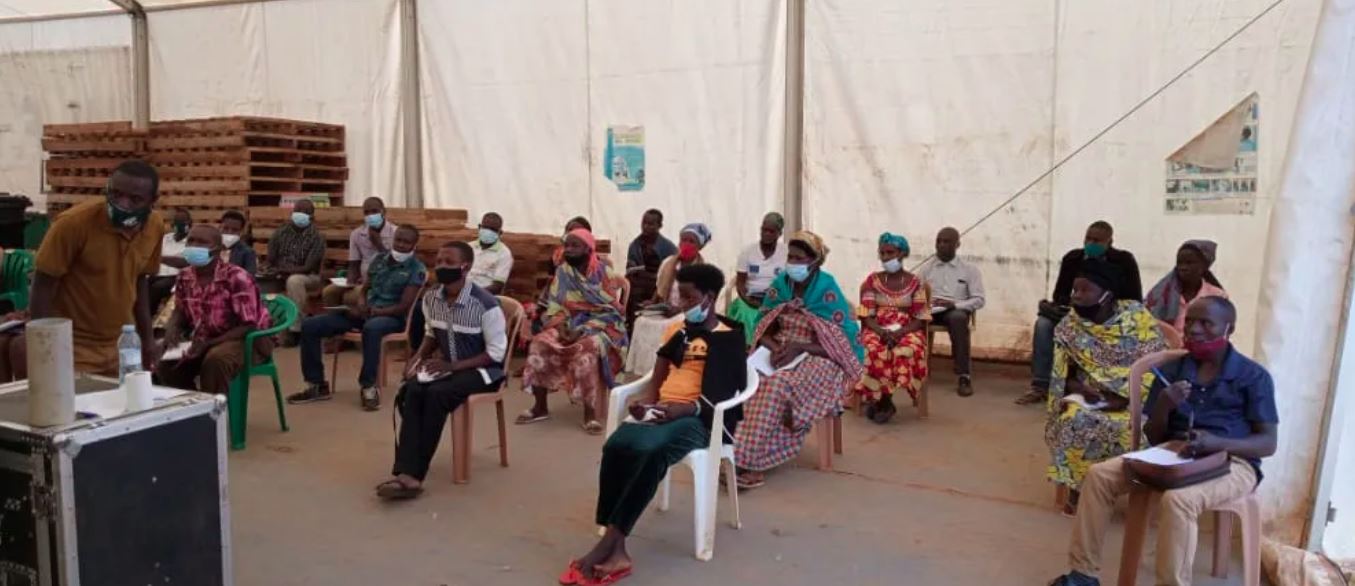
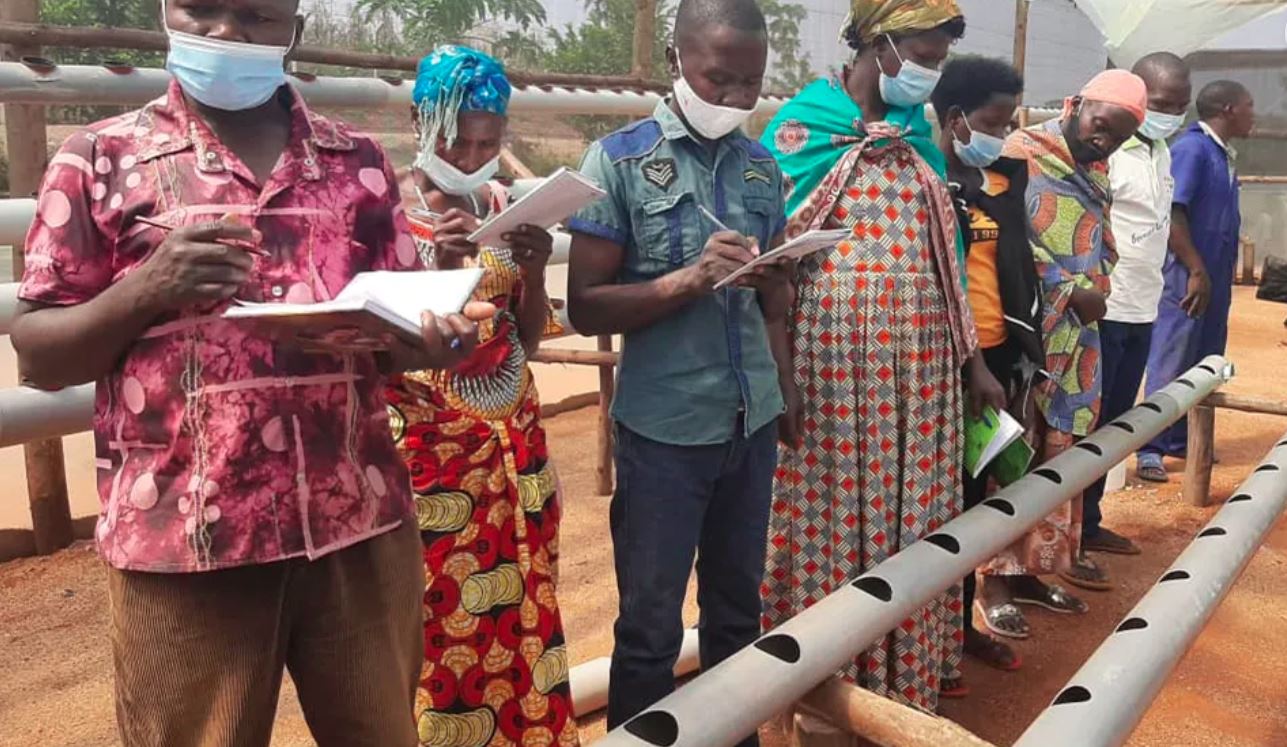
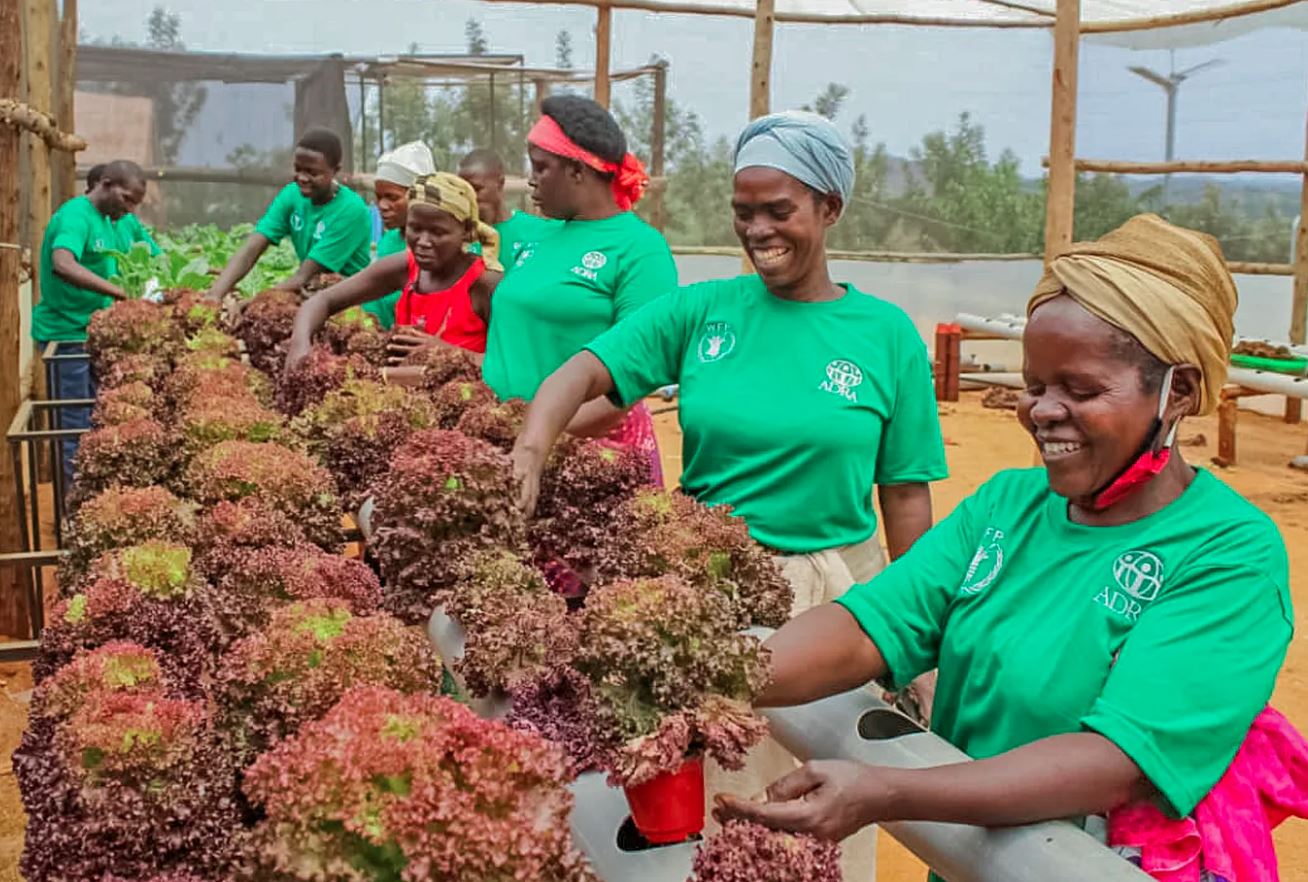
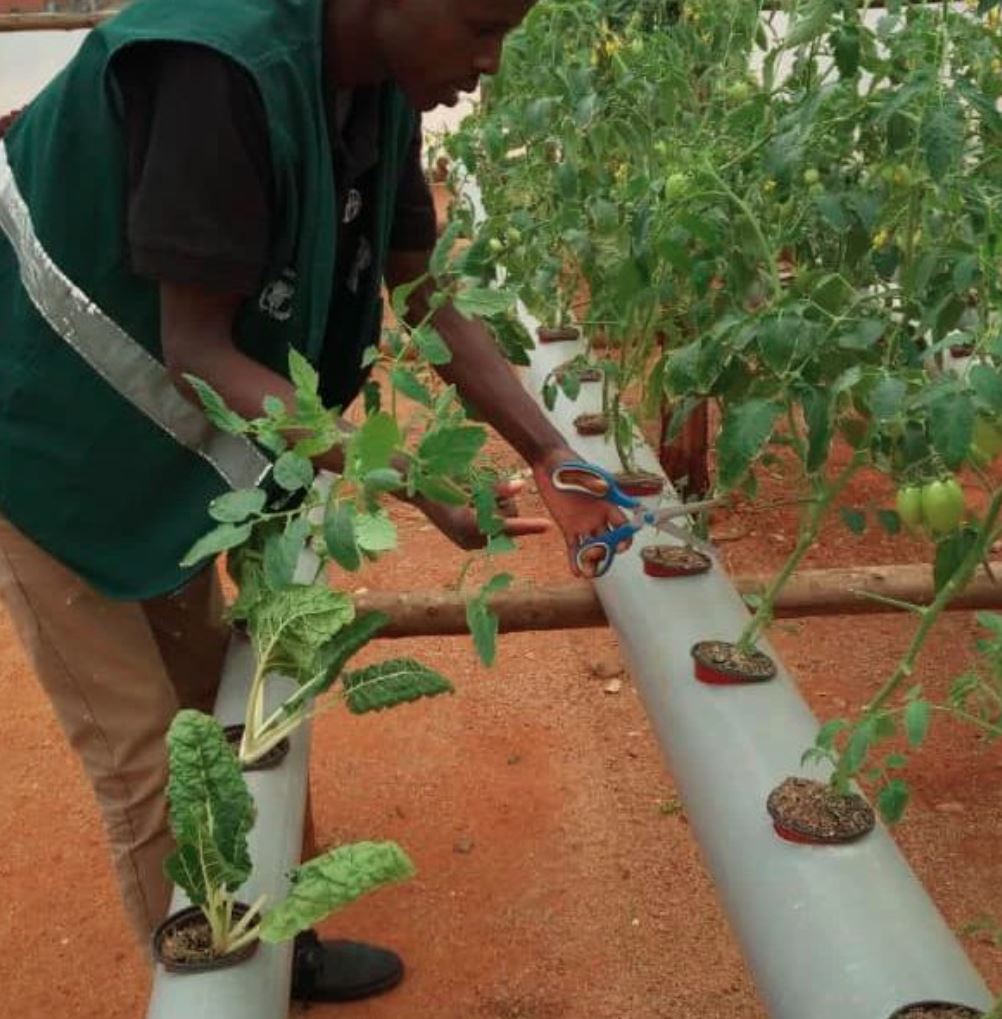
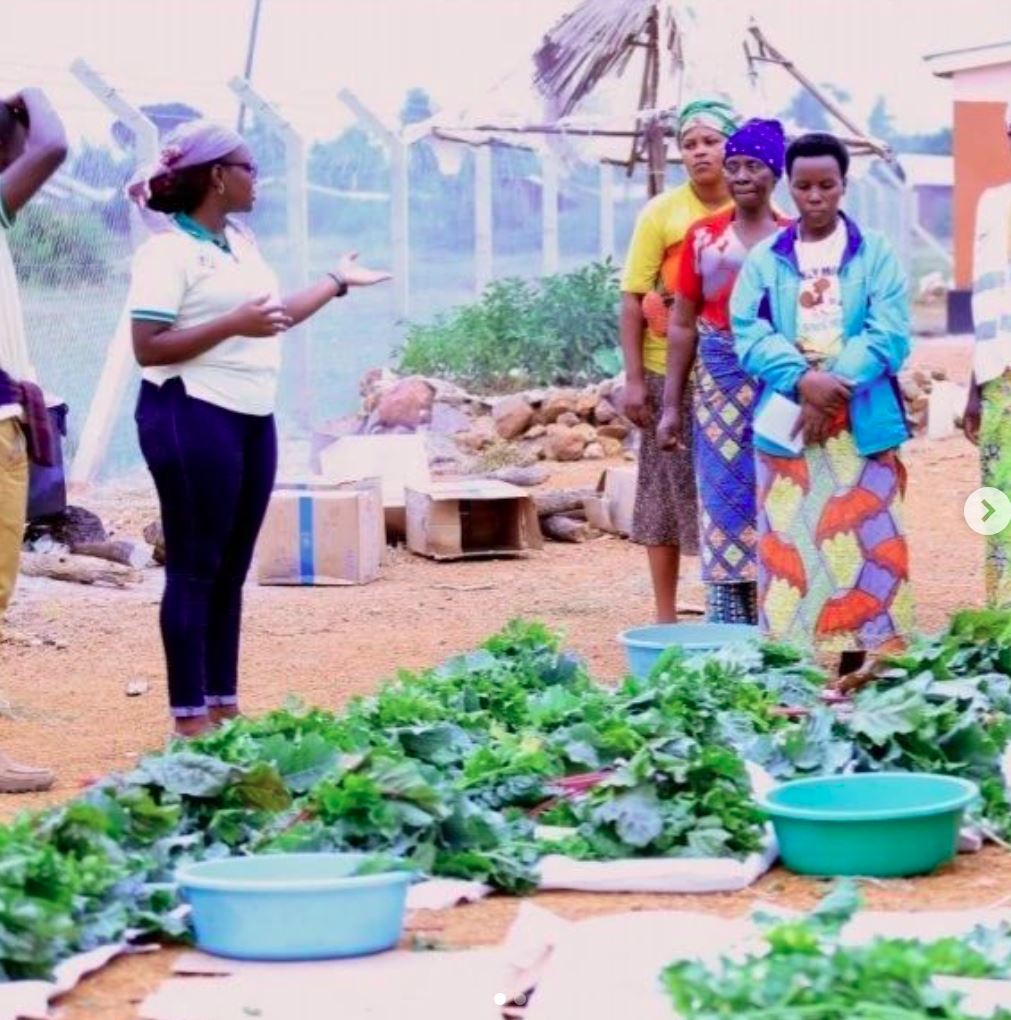
Certificate Awards
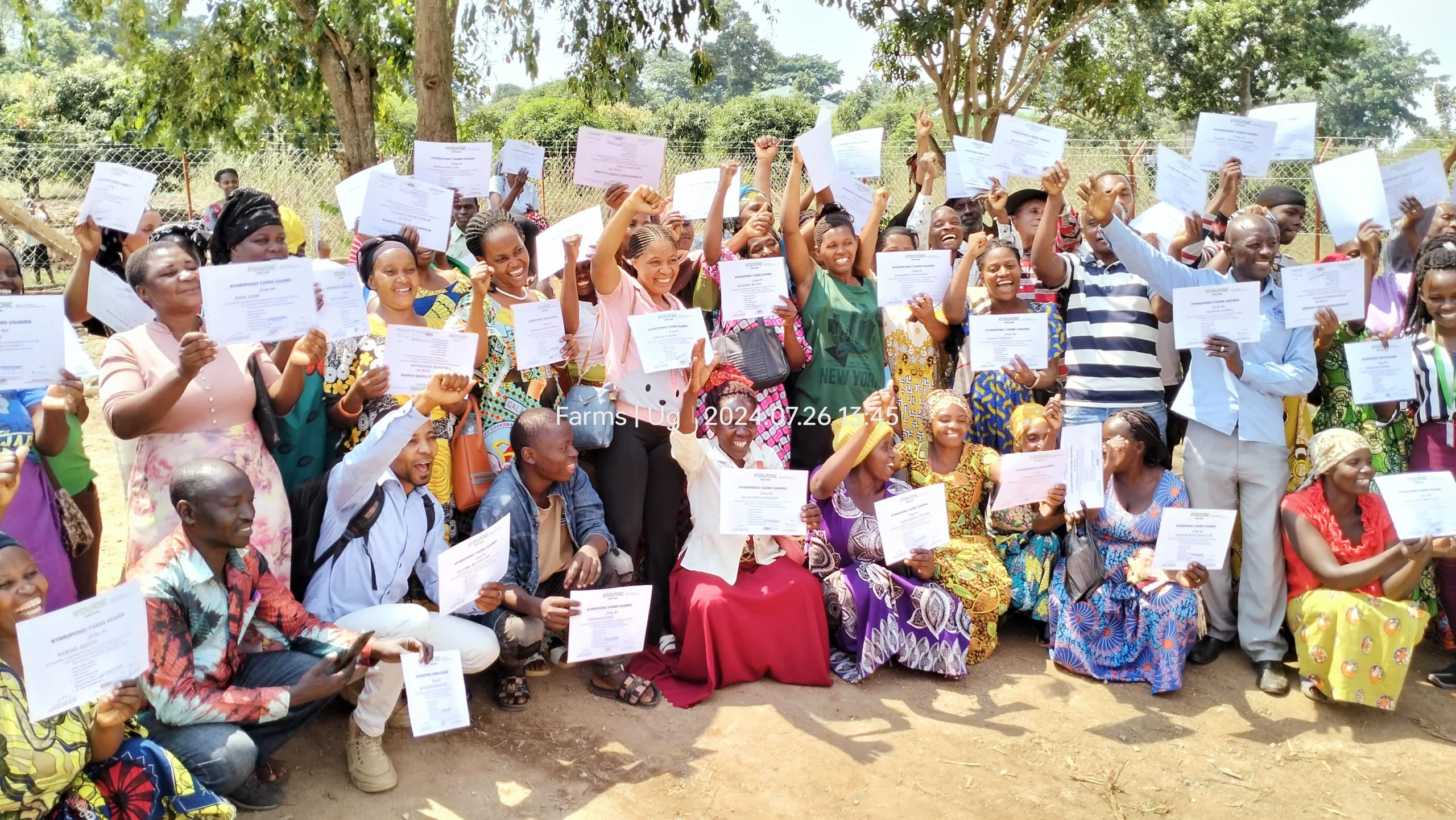
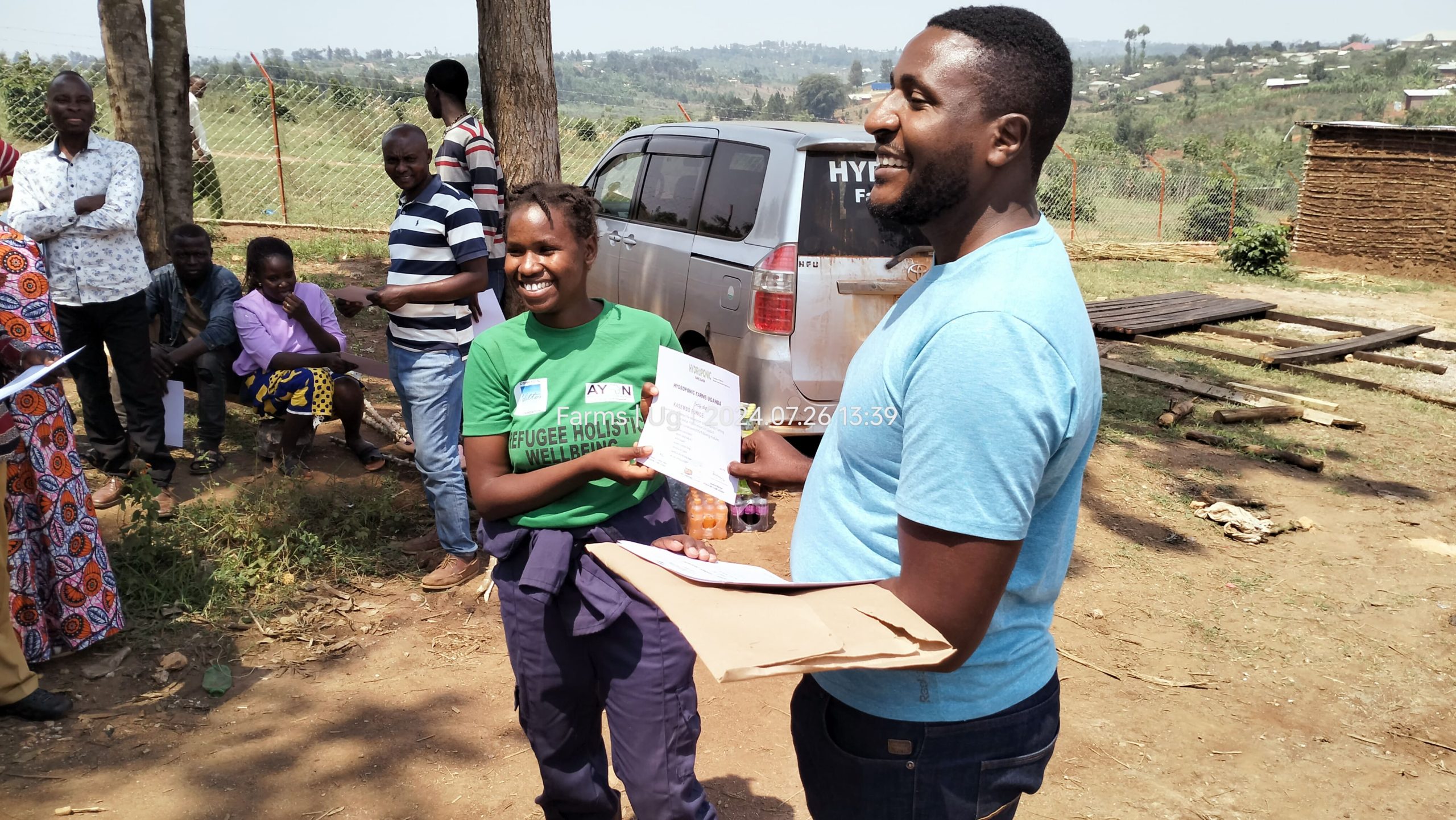
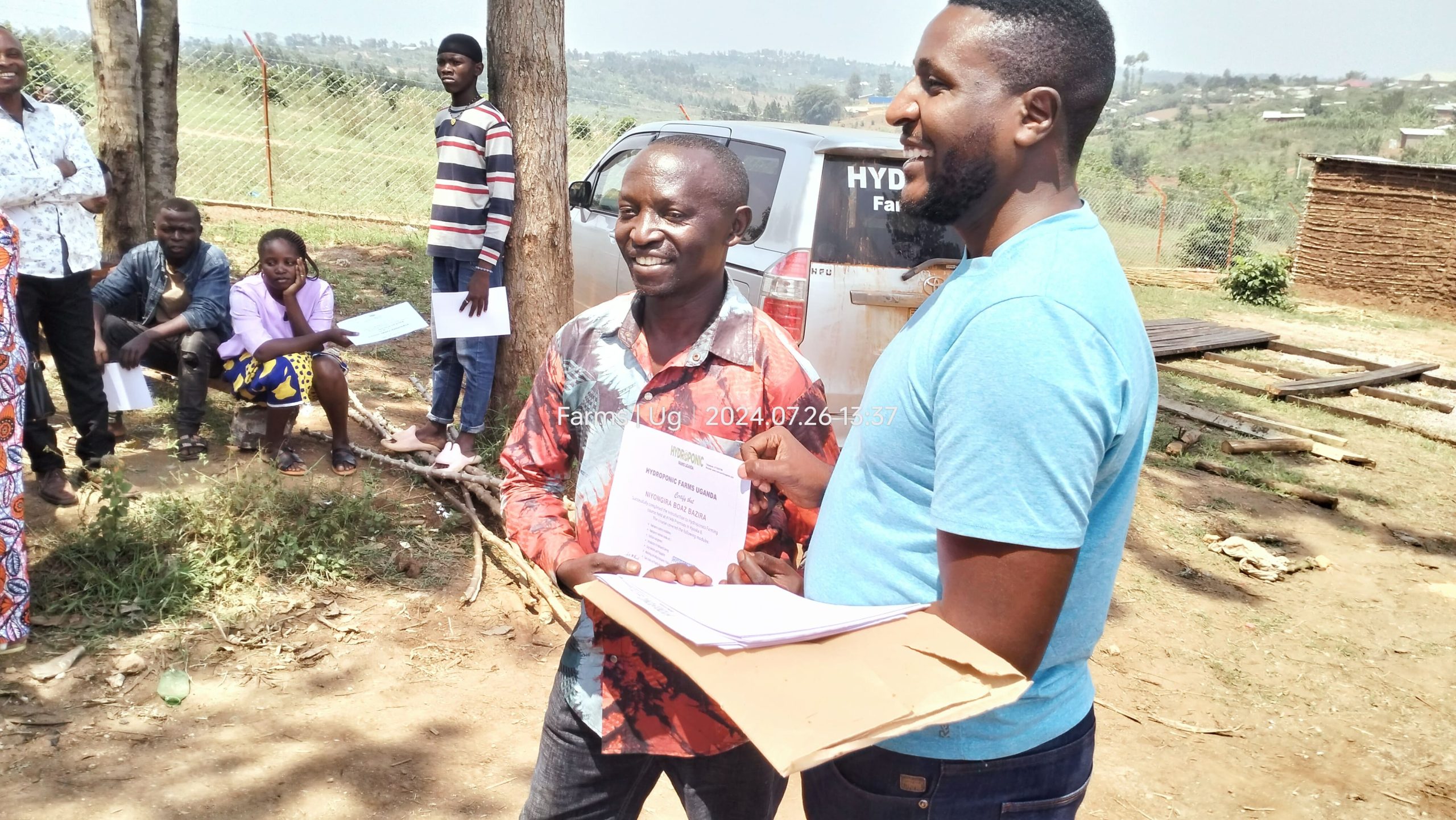
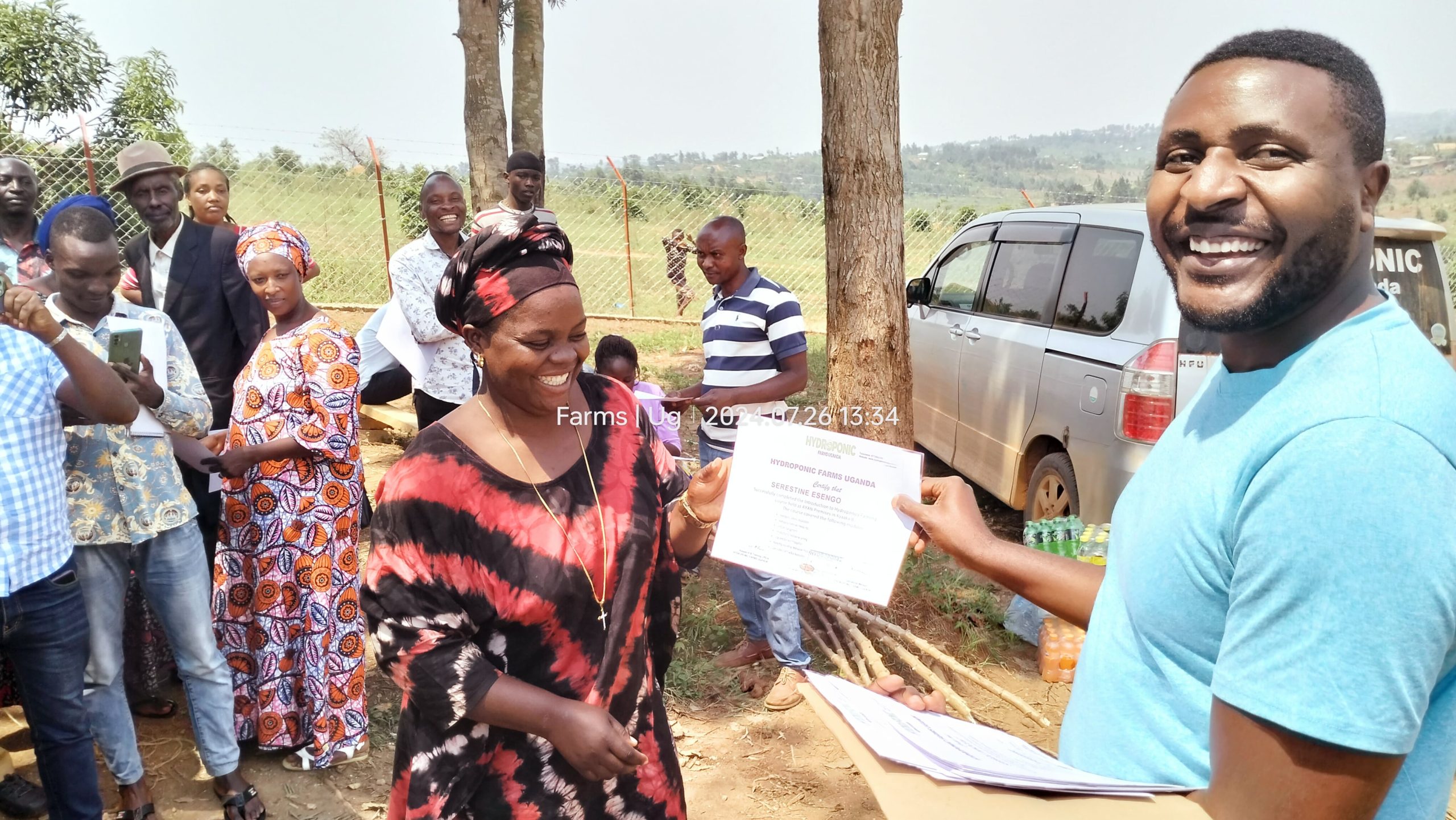
Hydroponics Training and Demo Gardens in Refugee Settlements
Demo Gardens
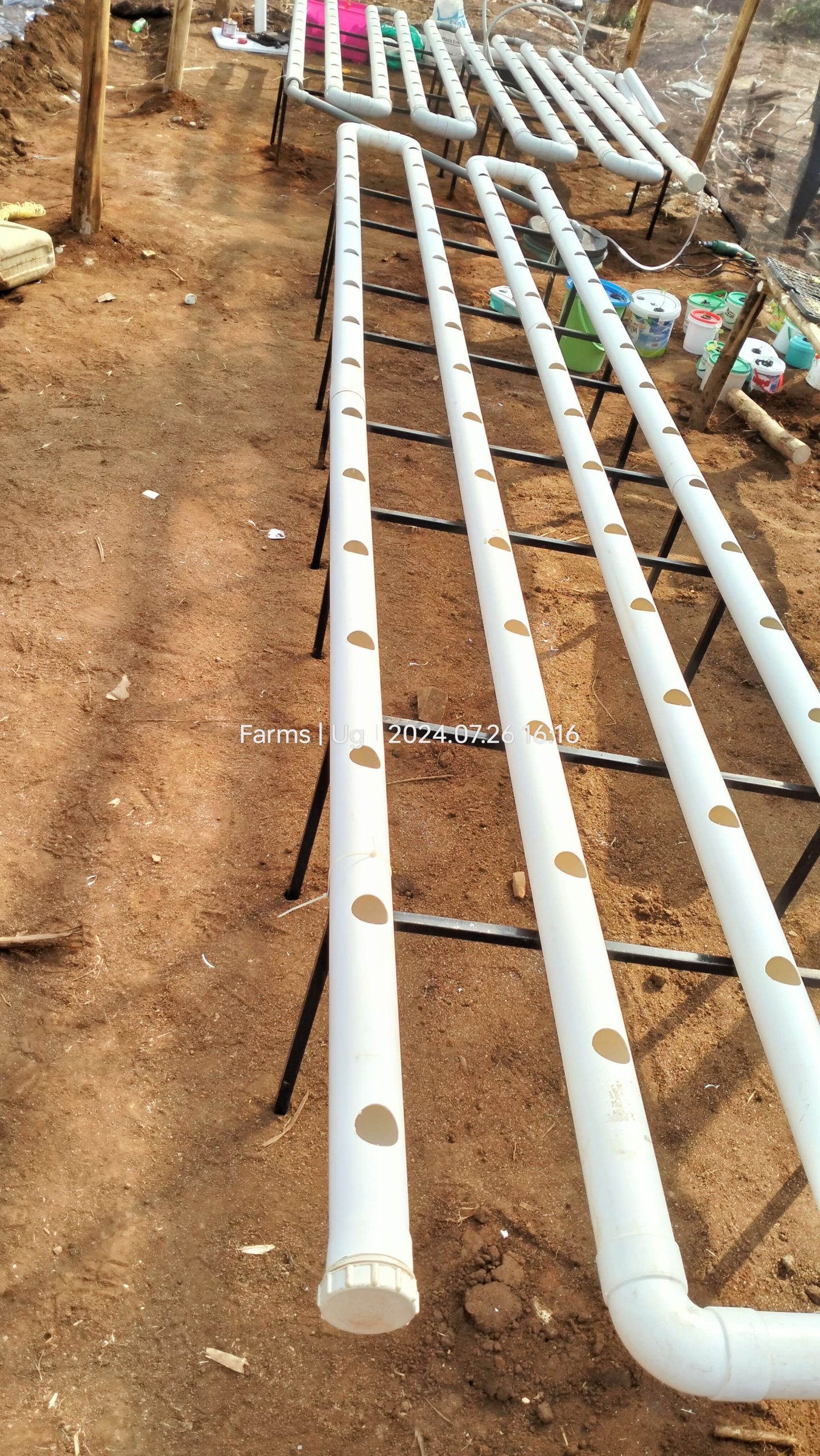
Demo Garden in Kyaaka II
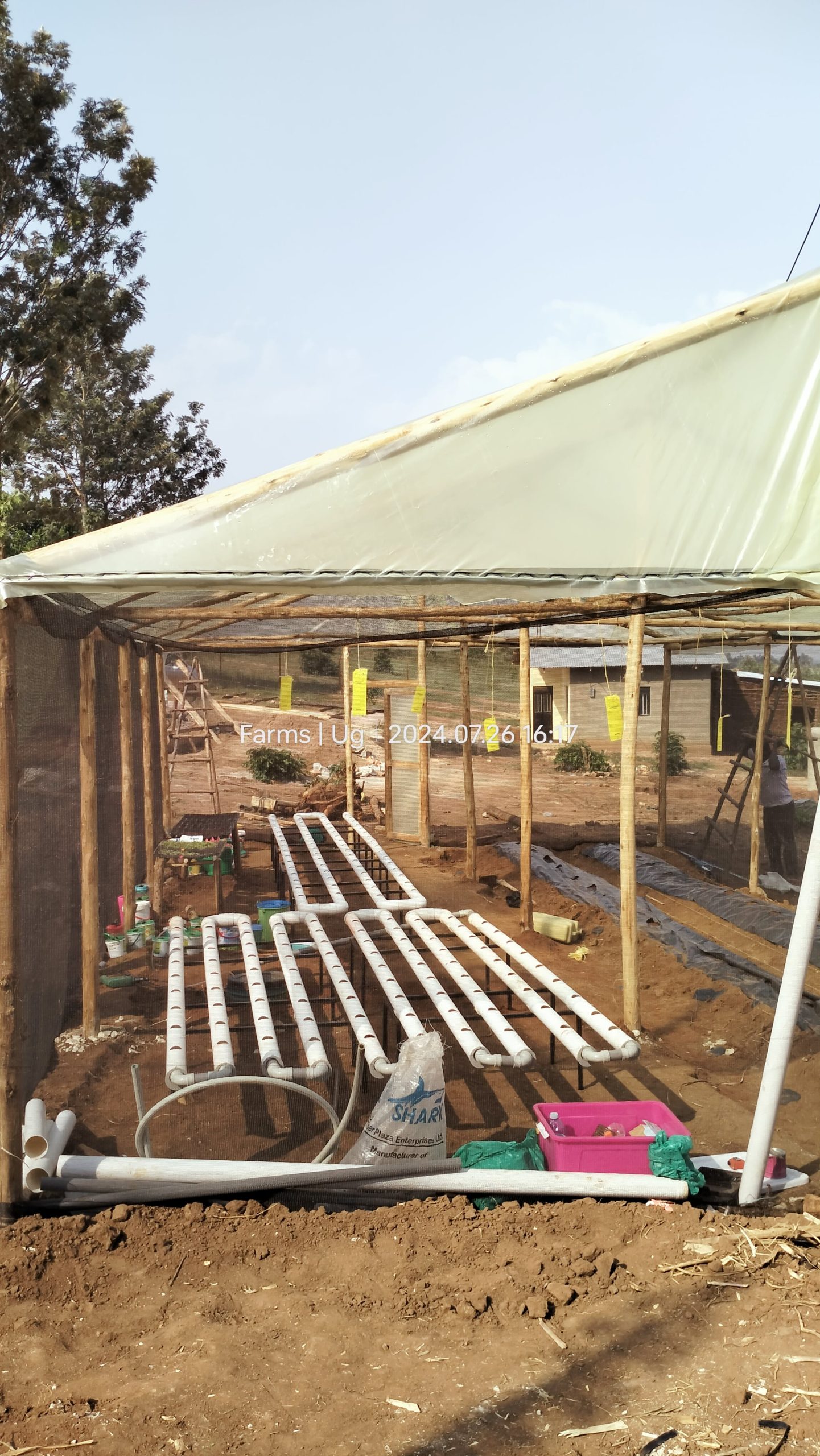
Demo Garden in Kiryandongo
Training in Kyaaka II
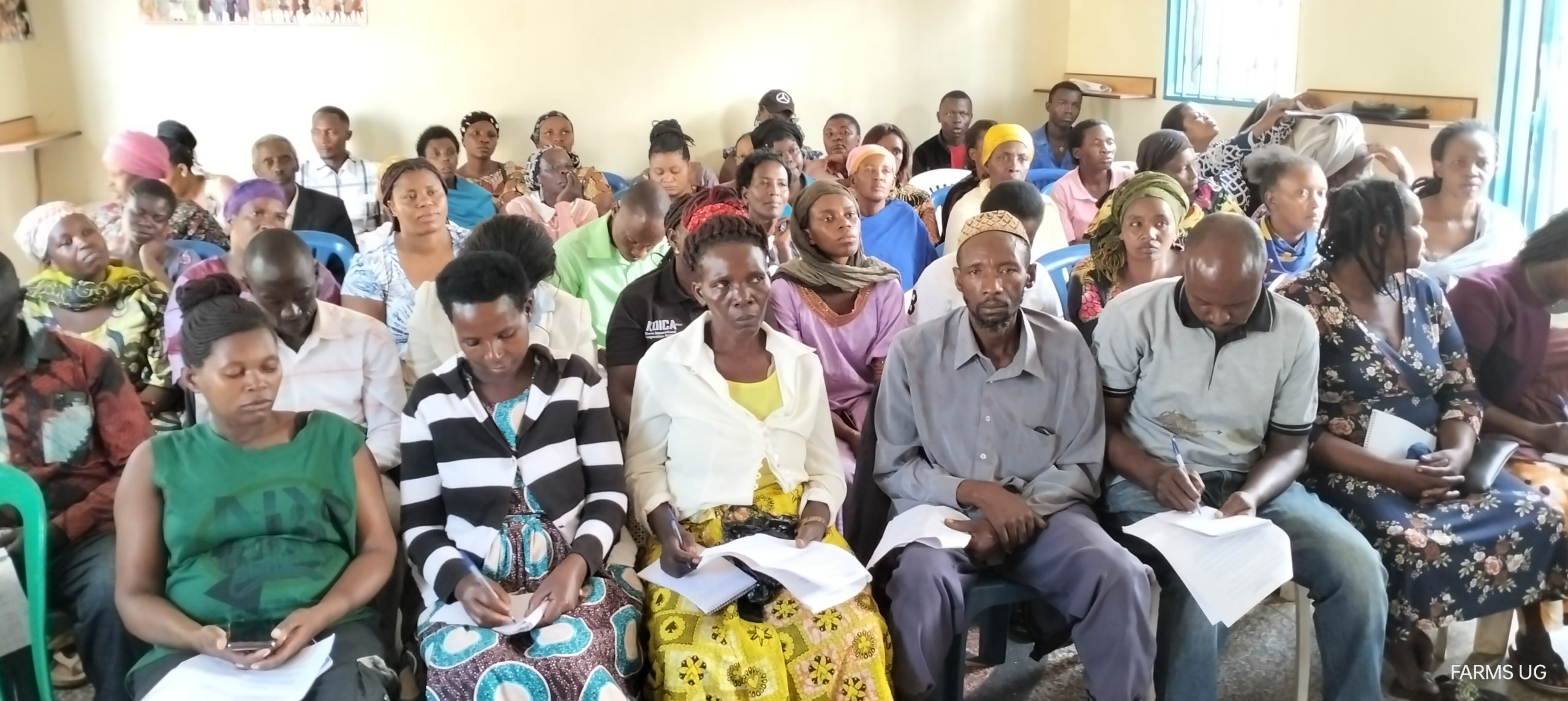
Training in Kyaaka II
Training in Kiryandongo
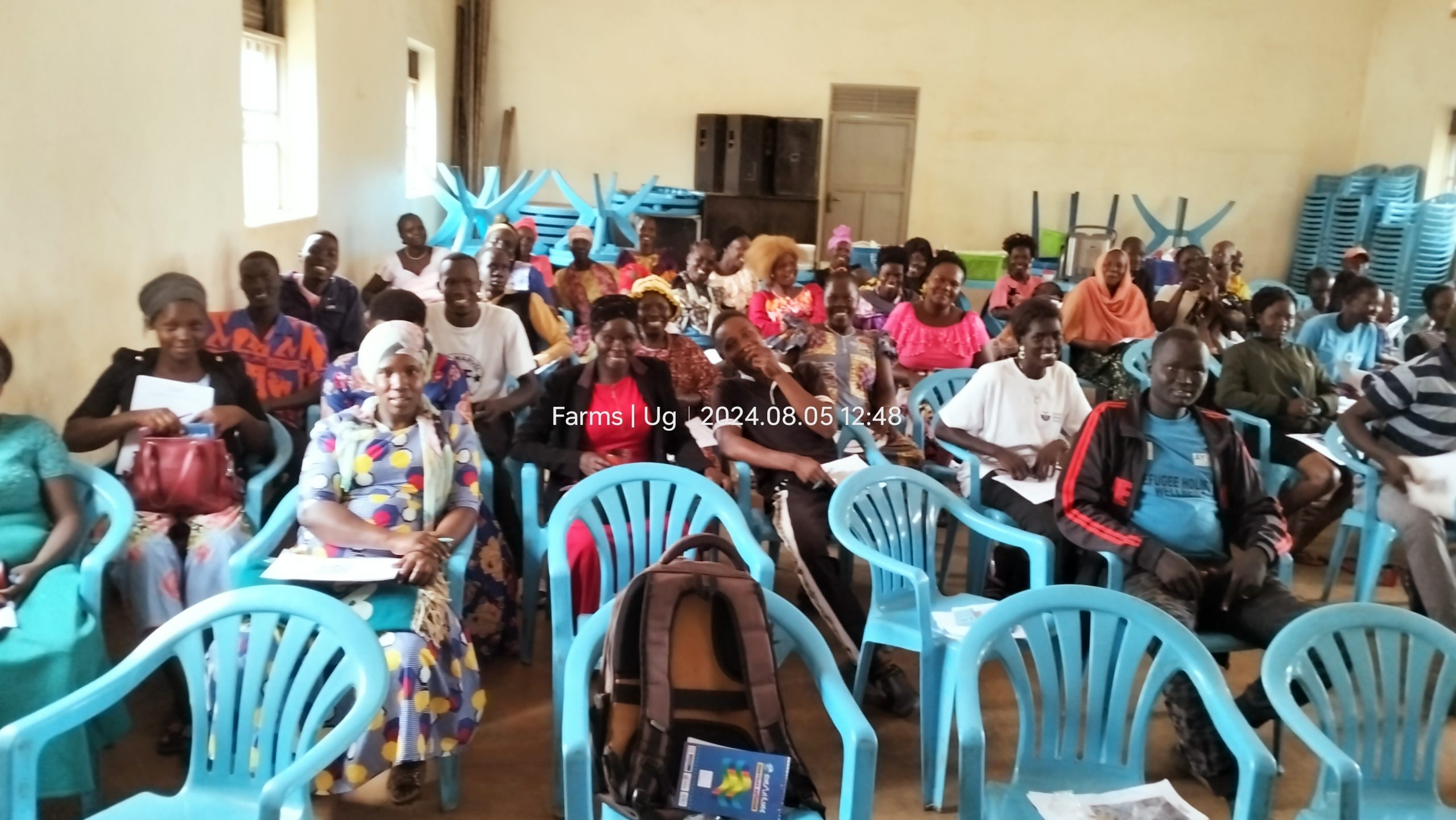
Training in Kiryandongo
